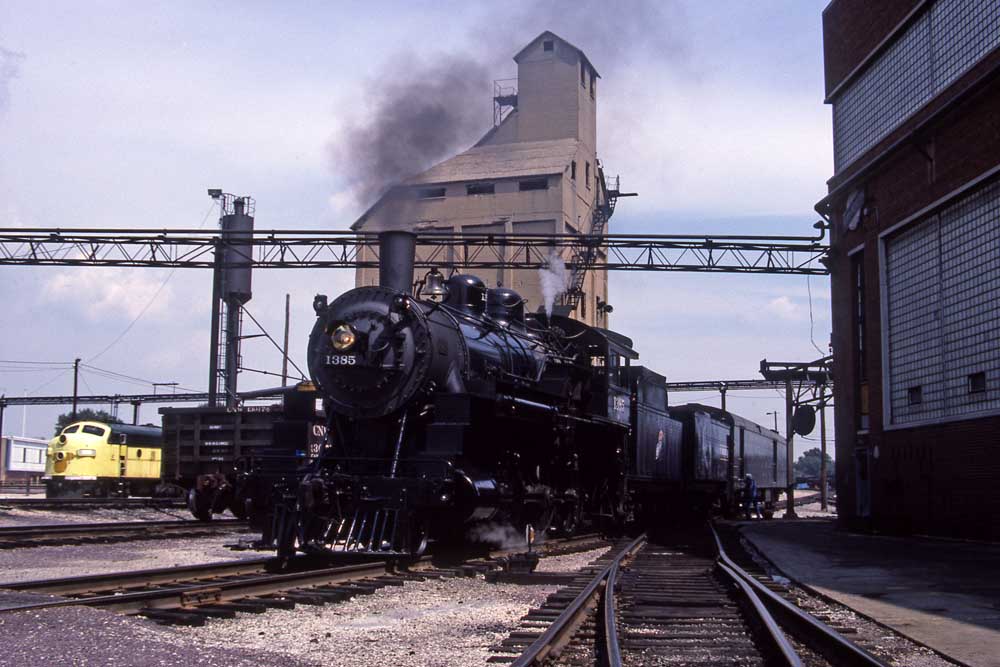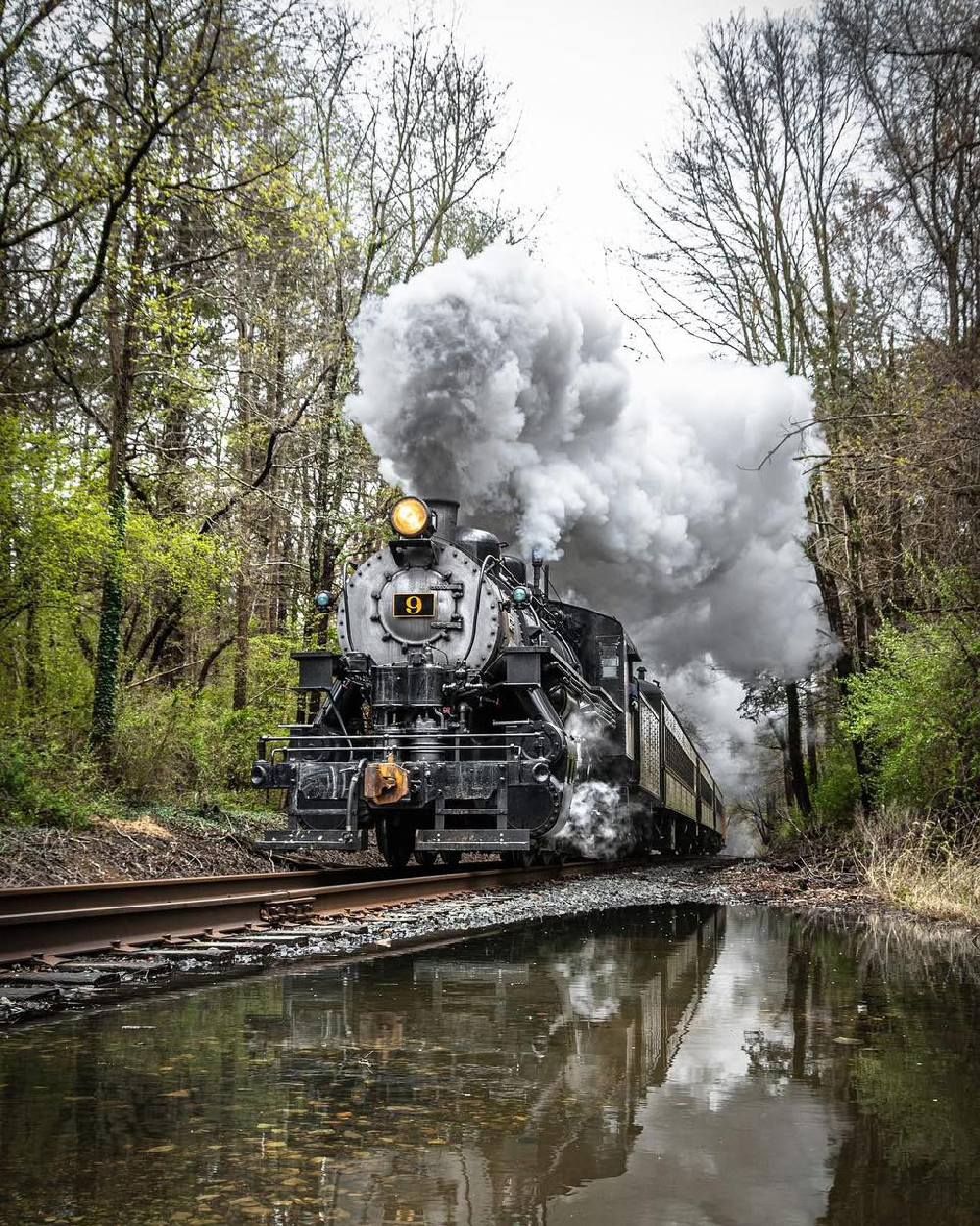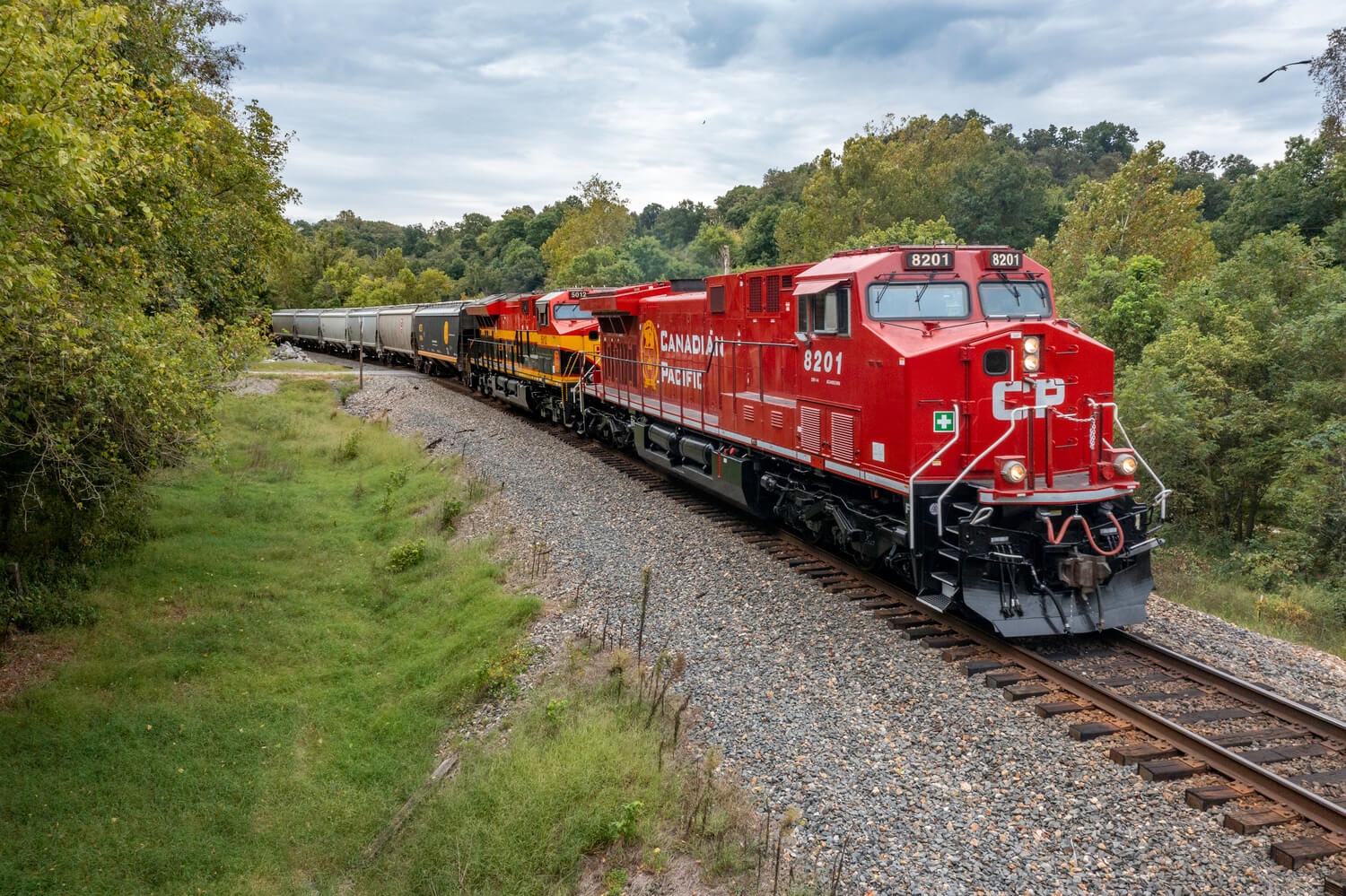 WASHINGTON — Citing a string of recent train-service employee accidents involving injury or maiming, the Federal Railroad Administration last week again warned Norfolk Southern about deficiencies in its conductor-certification program.
WASHINGTON — Citing a string of recent train-service employee accidents involving injury or maiming, the Federal Railroad Administration last week again warned Norfolk Southern about deficiencies in its conductor-certification program.
In an Oct. 28 letter to CEO James Squires, FRA Deputy Administrator Amit Bose wrote that “NS has had five conductors/brakemen suffer amputations and crushing injuries in the past seven months.”
Bose cited incidents on Oct. 20 and 26 in which “your employees, who were certified conductors with less than a year of service, were struck by  moving railroad equipment and suffered serious injuries . . . having two such serious injuries occur in such a short time raises serious concerns.”
moving railroad equipment and suffered serious injuries . . . having two such serious injuries occur in such a short time raises serious concerns.”
The Oct. 20 incident occurred at NS’s Bison Yard in Cheektowaga, N.Y., where a conductor was struck by a train, suffering a serious arm injury.
Bose wrote that FRA expects NS to “mitigate the likelihood of such injuries occurring in the future” and anticipates that “the root causes of these injuries will be discussed broadly across your railroad to raise awareness of the contributing factors that led to the injuries.” Further, FRA expects NS to incorporate “lessons learned” into its conductor certification process, according to the letter.
In addition, Bose wrote that “FRA expects NS to evaluate its conductor training program, in line with our letter of Sept. 9, 2021, which identified significant deficiencies in NS’ May 22, 2018, conductor certification program, to ensure that it is sufficient to prepare and protect individuals in performing duties as a certified conductor. Particularly, NS should consider any potential relationship between recent changes to the duration of its conductor training, and the frequency and severity of conductor incidents and injuries. NS’ revised conductor certification program is due Nov. 12, 2021.”
NS and unions representing its train and engine service crews are involved in a related dispute over the carrier’s practice of force-assigning engineers to work as conductors [see “Two unions sue Norfolk Southern …,” Trains News Wire, Oct. 29, 2021]. This follows depletion of conductor ranks through layoffs associated with implementation of NS’s version of Precision Scheduled Railroading, which calls for longer trains being handled by fewer crews.
Many if not most NS engineers began their railroad careers as conductors, but the skills employed in running a locomotive differ considerably from those involved with those of on-the-ground work. The unions point out that after working several years behind the throttle, engineers, may no longer be conversant with conductor-specific conditions and situations at certain yards and industry sidings. Conditions can change from time to time as tracks or signals are added or removed, or the carrier modifies safety or operating rules.
— Updated at 9:20 a.m. to remove out-of-date details on NS conductor training.














CSX sort of reminded me of the Soviet Union’s RR’s. But just a few minutes spendt at Little Falls NY with the ex-NYC Main Line showed that Precision Scheduled Railroading just means Fewer Slower Longer trains–FSL Railroading, that’s all. Lots of mid-train helper engines–a sure sign of effectively “combined” trains. Chase away more customers and soon there won’t be any railroad at all–just real estate to be used up somehow!
You can’t fix stupid, and most likely the conductors, whether or not they were new is besides the point, probably decided to do something stupid because it was easier than following the rules(which are always there for a reason).
1. New employees know only what they’ve been taught.
2. The information presented to new employees is viable only based upon the experience of the human presenting it and many carriers have opted for computer-based training and eliminated the human element,
3. Any documentation employed in the conduct of training of new employees is only as good as the depth of knowledge and experience of the person or persons who wrote the documentation. Training by committee is fallible.
4. New employees enter the service without the benefit of mentoring by long-term “old head” employees and are supervised by managers lacking any speakable long-term “dirty hands” experience and instead are governed by doctrinal management concepts with the obligation to generate daily quantities of computer-generated productivity reports that legitimize his/her continued employment.
5. New employees are not stupid, as you assert. They attempt to do their jobs correctly with what they have to work with with the knowledge the have been given. If they have been told in their training that they can park two automobiles side-by-side in a one car garage as a concept by an alleged authority figure, who are they to question what their employer has told them even if they suspect the contrary to be true.
6. Railroad operating rules are capricious critters and too many new employees receive cursory instruction about a select few rules but not all rules. To learn railroad operating rules, an intimate understating of all definitions must be grasped first and examples of such definitions include “engine”, “main track”, “yard limits”, and “signal” (“absolute signal”, “automatic block signal”, “distant signal”, and “controlled signal” as examples). Carrying this further, understanding the many ways to acquire access to a main track or a controlled siding (there’s another definition) arise but I’m confident you already recognize those distinctions.
7. New employees want to do the very best they can so as to: (1) get by the 90-day “derail”, (2) to demonstrate that they are capable, competent and deserving of greater opportunities, and (3) because they might actually catch on to what is required to make the job functional and safe and perhaps like the job.
8. Carrying this monologue to conclusion, In June, 1972, I became a train order train dispatcher on a very large Western railroad that operated in Texas. I was given fundamental instruction in the nuances of dispatching trains on this carrier because I had prior exposure to train oder train dispatching on two other carriers and then turned loose to break in under the tutelage of a very experienced old-head train dispatcher.
9. I broke in for eight days and established my seniority date on the ninth day and spent sixteen years as a train dispatcher and then chief dispatcher before becoming a regional rules instructor at the regional headquarters of my long-term employer.
10. The long-term relevance of my commentary is that the ancient, old-head rules instructor who mentored me upon the nuances of being a train dispatcher on his railroad is that on multiple occasions, he admonished me to understand that as far as he was concerned, it took five years to make a good train dispatcher and my career experiences gave credence to that admonishment. Development of knowledge and confidence in that knowledge is an evolutionary process and does not occur in any way upon departure from the learning environment and entry into the real world on the first day.
11. On the railroad, easier is neither an expedient nor is it an assurance of safety. Be governed accordingly.
Carriers only know, appreciate and value financial costs. Raise how much each injury stings their pocket books by a factor of 10, or 100 or 1000 and I think they will get more motivated, yes? 5 in 7 months is outrageous and insufferable.
Pretty weak response from FRA.
Ray, I’ve never forgotten the first time I had an Amtrak Conductor talk about the “Nazi Southern” as we were leaving Chicago. Not a good image.
Maybe the reason behind many of their laid-off engineers and conductors refusing to come back to work on re-call. Ya think? Between slipshod training and lousy working conditions, many are saying to hell with it. Morale is rock-bottom.
that’s why the moniker ‘Nazi Southern’…
you said it !! the nickname is well used in the Philly-Wilmington area. It’s that ingrained southern BOSS HOG mind set